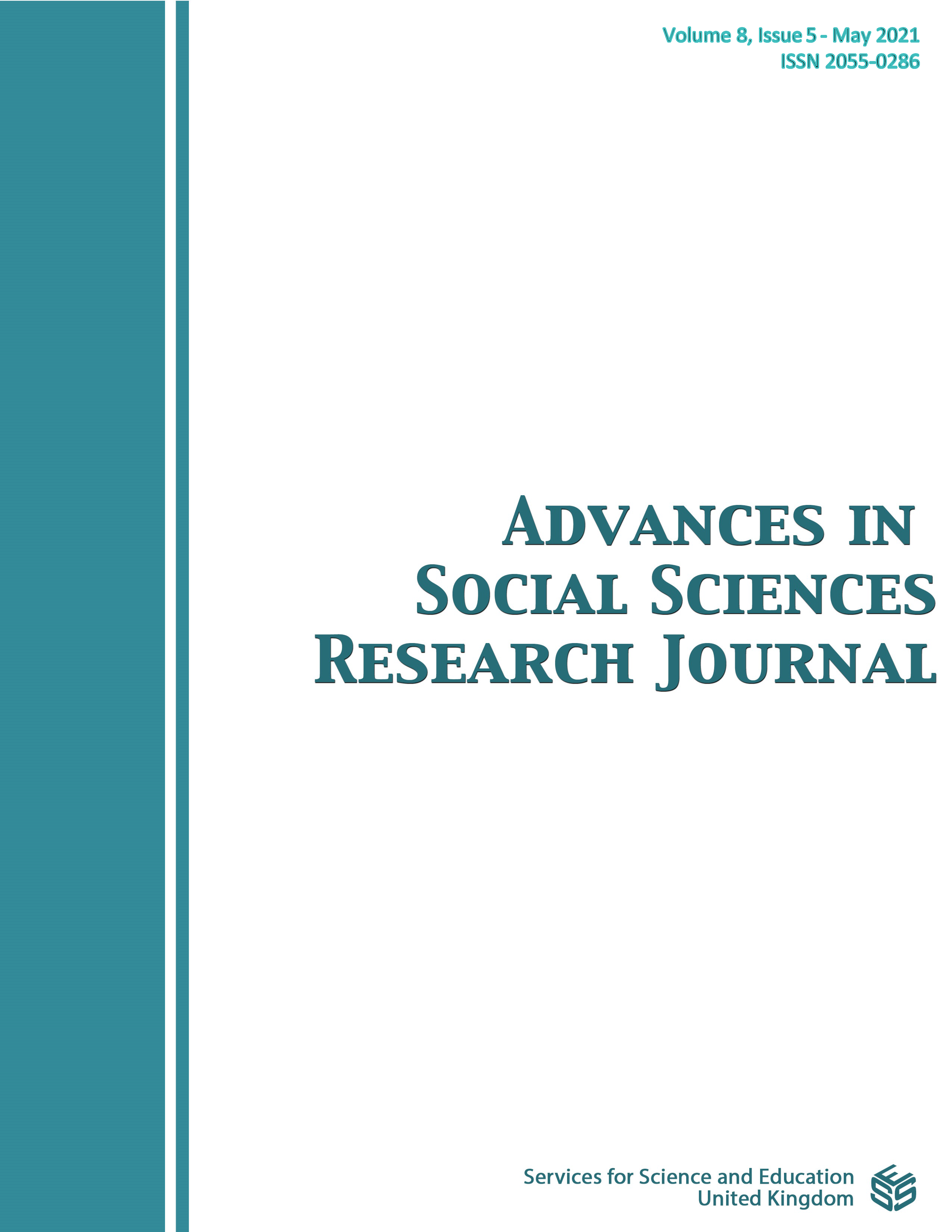Means of Electronic Communication and its Impact on Feelings and Behavior of Individuals
DOI:
https://doi.org/10.14738/assrj.99.12944Keywords:
Electronic communication, Psychological disorder, Adolescents, Bahavior disorderAbstract
The phenomenon of addiction to the use of social media on the Internet has become noticeably prevalent among young people and adolescents. Therefore, this study sought to find out whether there is a direct relationship between Internet addiction, psychological alienation, and emotional relationships, and whether there are statistically significant differences in (internet addiction, psychological alienation, emotional relationships) due to the economic level, and Whether there are statistically significant differences attributed to gender and educational qualification in both electronic communication addiction, emotional relationships, and psychological alienation, in addition to spreading awareness among families about the danger of excessive use of electronic means of communication on adolescents and youth and clarifying the psychological, social and behavioral problems resulting from it. The current study released on the descriptive survey method, and the study sample included (74) respondents from young people and adolescents of both sexes in the Makkah region. A questionnaire was developed to collect the data needed for this study by reviewing the relevant literature. The questionnaire consisted of two parts: the first section included demographic data for the sample members, namely gender, social status, educational level, economic level, and the number of hours of internet use per day. The second section included the next main themes of the study: The first axis: addiction to electronic media; the second axis: the impact of Internet addiction on the behavior of individuals (emotional behavior); the third axis: the impact of Internet addiction on the occurrence of psychological alienation among adolescents and young adults. Among the most important findings of the study is the existence of a direct relationship between the study variables (internet addiction, psychological alienation and emotional relationships), meaning that the greater the internet addiction, the greater the psychological alienation and emotional relationships, and vice versa. The study recommended holding training courses for parents on how to deal with children in light of the globalization of the Internet, providing oversight from a specialist to combat Internet products and markets, and providing control and control programs.
References
Bener A, Yildririm E, Torun P, Catan F, Bolat E, Alic S, et al. Internet addiction, fatigue, and sleep problems among adolescent students:A large scale study. Int J Ment Health Ad. 2019;17:959–69. [Google Scholar]
Davis, R. A. (2001). A cognitive–behavioral model of pathological Internet use. Computers in Human Behavior, 17, 187–195.
Ferraro, G., Caci, B., & D’Amico, A., et al., (2007). Internet addiction disorder: An Italian study. CyberPsychology & Behavior, 10, 170–175.
Ibrahim, Abul-Hassan (2007): “The Dynamics of Deviance and Crime,” Higher Institute of Social Work, Aswan, Qena.
Ko, C. H., Yen, J. Y., Chen, C. C. et al., (2005). Gender differences and related factors affecting online gaming addiction among Taiwanese adolescents. Journal of Nervous & Mental Disease, 193, 273–277.
Ko, C. H., Yen, J. Y., Chen, C. C. et al., (2005). Gender differences and related factors affecting online gaming addiction among Taiwanese adolescents. Journal of Nervous & Mental Disease, 193, 273–277.
Li W, Garland E, Howard M. Family factors in internet addiction among Chinese youth:A review of Chinese and English languages. Comput Hum Behav. 2014;31:393–411. [Google Scholar]
Shek DT, Zhu X, Dou D. Influence of family processes on internet addiction among late adolescents in Hong Kong. Front Psychiatry. 2019;10:113. [PMC free article] [PubMed] [Google Scholar]
We Are Social. (2018). The Grouch of Social Media Users Around The World in 2018, https://wearesocial.com/blog/2018/01/global-digital-report-2018, In England and Wales
Yu, J. J., Kim, H., & Hay, I. (2013). Understanding adolescents’ problematic Internet use from a social/cognitive and addiction research framework. Computers in Human Behavior, 29, 2682–2689.
Downloads
Published
How to Cite
Issue
Section
License
Copyright (c) 2022 Nihad Ibrahim Badr Barakati

This work is licensed under a Creative Commons Attribution 4.0 International License.
Authors wishing to include figures, tables, or text passages that have already been published elsewhere are required to obtain permission from the copyright owner(s) for both the print and online format and to include evidence that such permission has been granted when submitting their papers. Any material received without such evidence will be assumed to originate from the authors.






